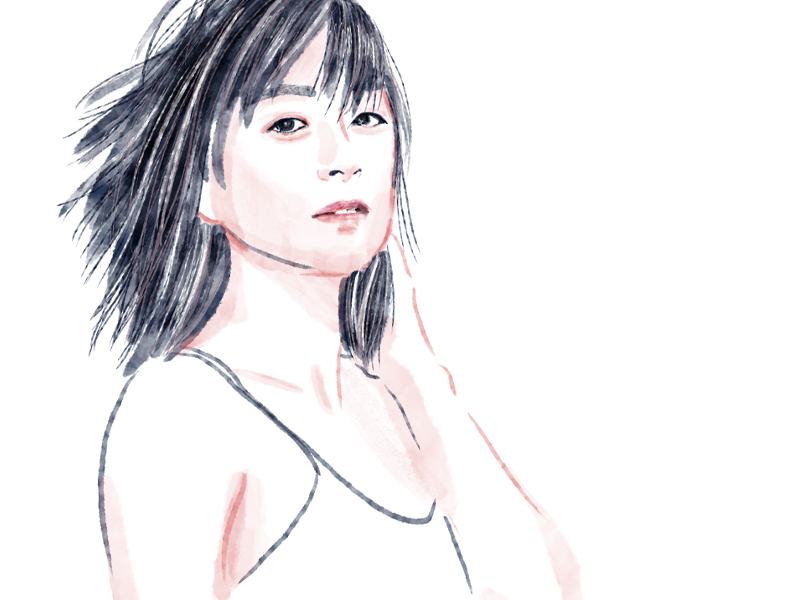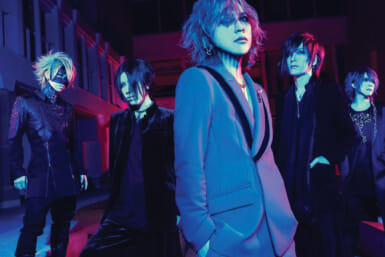May has been a particularly great month for Japanese rock, in its many different forms. In addition to the tracks by Bo Ningen, The Novembers and The Telephones discussed below, Mega Shinnosuke’s “Sports” tried its hand at energetic, raucous indie pop rock and Kikagako Moyo’s psychedelic folk reached new hazy, heights with “Ouchi Time.”
In an effort to refrain from simply touting anything and everything related to Sunny Day Service, there isn’t a piece here on Keiichi Sokabe’s new track “Sometime in Tokyo City.” If you do have time, however, for a fifteen-minute meandering, ponderous folk tune – definitely give it a go.
1. Mom, ‘Cult Boi’
(JVCKENWOOD Victor)
Alongside the likes of Yonawo and Mega Shinnosuke, Mom is another voice in Tokyo’s emerging young, shapeshifting, sample-happy songwriter scene. Whereas Yonawo opts for neo-soul and Mega Shinnosuke indie, Mom’s penchant has, so far, largely been hip hop. “Cult Boi” combines the influences of industrial hip hop, neo-soul, funk and indie but it’s the manner in which they are brought together that makes this track so interesting.
‘Cult Boi’ is a short tune, barely more than two minutes, and it moves fast. So fast, in fact, that it verges on sound collage. It throws itself from an absurd intro into warped, clattering beats; from there to a soulful breakdown with soulful guitars and a funky lead and, finally, to a very brief dance sample.
Mom’s unlikely vocals heighten the mood, transitioning from rapping to distorted yelling and, eventually, warbled singing. His lyrics could be interpreted as referencing horrorcore hip hop but they’re equally ingrained in simple angst, Mom’s frustrations mirroring his frenetic instrumental.
So clean and divergent are the styles that “Cult Boi” feels somewhat collage-esque, only every flourish and transition is contained within Mom’s idiosyncratic atmosphere. As a product of one of my favorite styles of hip hop and one of Tokyo’s most exciting scenes, ‘Cult Boi’ is easily one of this month’s musical highlights.
2. Hikaru Utada, ‘Time’
(Sony Music)
Hikaru Utada is, for many, the face of 21st century J-pop. But she’s also far more than just a big name. Utada is one of the most distinctive voices in the charts and, for almost 20 years, has been one of Japan’s most influential, trend-setting pop artists.
“Time”, a theme-tune track for TV show “Bishoku Tantei Akechi Goro,” could easily have been a throwaway number, another of those TV-commercial tunes that wash over otherwise-occupied listeners.
But it isn’t. “Time” is terrific. In her usual style of R&B, Utada’s lyrics are heartfelt and her vocals catchy and powerful, her performance topped with an iconic wavering vocal lead in the hook. Her instrumental is sparse but exhaustively built while the track’s phasing warrants impact without any overbearing theatre. Even if “Time” is just a throwaway tune, it’s one of Utada’s – so it’s damn great anyway.
3. The Novembers, ‘Rainbow’
(MERZ)
The Novembers’ hybridity has always been both their greatest draw and defining imperfection. Their music can be exhilarating in its unpredictability, underlain by formidable musicianship and brave experimentation but it can also be severely inconsistent. With such erratic indifference to a set style, fans struggle to find coherence in their work – especially over the course of an album.
And that’s been the case again this month, with both “Rikaisha” and “Rainbow.” “Rikaisha,” a grungy and pulsing track, feels dated, like an accompaniment to late 2000s metalcore bands such as Crossfaith and Enter Shikari. “Rainbow” isn’t in the same league. It has radiant synths in the back and foreground and a rapid drum ‘n’ bass beat. It appears to be founded in pop music, its overarching spectacle both glitchy and exceptionally pretty.
In other words, The Novembers continue to do what they’ve always done. Great tunes and not-so-great tunes, separated by stylistic gulfs but released in the name of their quest to be the most varied and daring act in contemporary experimental rock.
4. Bo Ningen, ‘Zankoku’
(Alcopop!)
In the six years since Bo Ningen’s last record (2014’s III) the London-based band evidently made a concerted effort to freshen their approach. “Zankoku” still abides somewhat by the influences of their signature sound –nan amalgam of noise rock and psychedelic rock with hints of krautrock and post-hardcore – but it’s also markedly different.
Most obviously, “Zankoku” is instrumentally clearer. Its range of guitar sounds verge from droning distortion to staggered, muted leads; the track’s multiple moving parts often overlap but don’t drown each other out. Meanwhile, Taigen Kawabe’s vocals, ranging from rapping to menacing exasperations, reliably sidestep expectations.
There is now no mistaking Bo Ningen for stoner rock or acid psychedelia. Various rhythms and melodies play throughout “Zankoku” but there isn’t the same woozy, jam-band disorientation of those genres. If “Zankoku” is to be taken representative for Bo Ningen’s upcoming record, it hints at their most significant transformation so far.
5. The Telephones, ‘Tequila, Tequila, Tequila’
(Virgin)
Dance-punk emerged first in New York in the early 2000s but The Telephones are credited with first bringing the post-punk, nu-rave style of party music to Japan. In the years since, few artists have kept the genre quite as fresh as they have, fueled by dancing, partying and their signature love of disco.
“Tequila, Tequila, Tequila” shamelessly rollicks with all of those traits. It’s got sauntering, sexy verses and yell-along choruses, all compiled out of lyrics that are largely nonsensical. Everything to do with the guitars, bass, drums and solo are as simple as it gets – but that simplicity only drives its oomph.
The track has so much energy that it kind of smells like a sweaty party which, seeing as it will be a while before I can get to one of those, I like being reminded of. Dance-punk, nu-rave, whatever you want to call it – The Telephones are still doing it like no one else.









